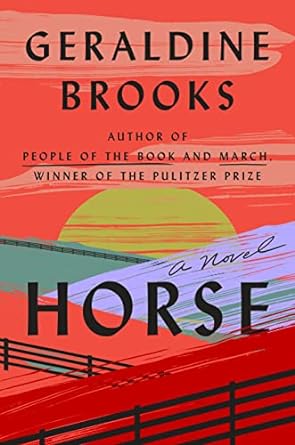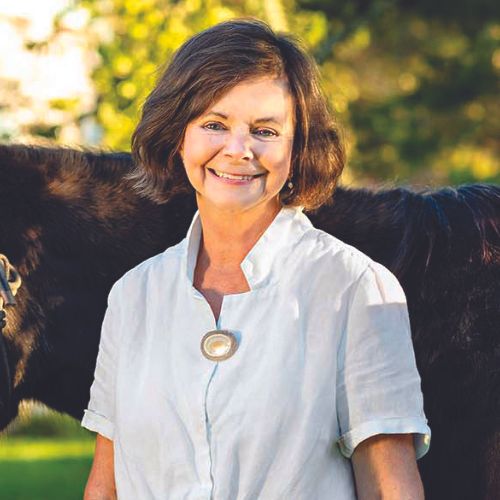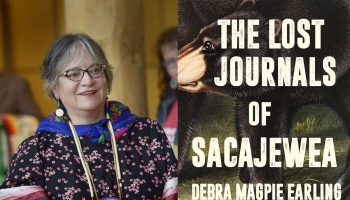What began as the fascinating story of a legendary 19th-century racehorse turned into a tale of art, science and society’s “unfinished reckoning with racism,” according to Geraldine Brooks.


Based on the true story of the record-breaking thoroughbred Lexington, Brooks’ latest book, Horse: A Novel, is this week’s Chautauqua Literary and Scientific Circle selection. Horse — which Brooks will discuss and read from at 3:30 p.m. today in the Hall of Philosophy — weaves together three stories as it explores an enslaved groom and a young artist’s connection with the race horse in Lexington 1850; their overlap with a New York City gallery owner in 1954; and a Smithsonian scientist and art historian as they study the stallion’s bones in 2019.
Brooks is an Australian-American journalist and Pulitzer Prize-winning author of nine books, including The Secret Chord, Caleb’s Crossing, Year of Wonders and March, all which have been previous CLSC book selections. She won, with her husband, the Overseas Press Club Award for best coverage of the Gulf War in 1990, and was named an Officer in the Order of Australia in 2016.
Horse received the 2023 Indie Book Awards Fiction prize; the 2023 Anisfield-Wolf Book Award for Fiction; and was a finalist for the 2023 Chautauqua Prize. The novel was also one of the very first 2024 CLSC selections chosen and announced during 2023’s Bryant Day celebration.
During Brooks’ presentation today, she’ll discuss the main themes of the book and explore human-animal relationships — including what they give us and what we owe them. She said she’ll dive into society’s unfinished reckoning with racism, and highlight the historical details that the story brings to life.
When writing the novel, Brooks realized that there was plenty of information about Lexington — considered to be the fastest horse in the world for 20 years, and the country’s leading sire — but not nearly enough about the people responsible for his success.
“Those were mostly enslaved or formerly enslaved Black men who were highly skilled horsemen, and on whom the incredibly important — and producer of great wealth and prestige — thoroughbred industry rested,” she said. “So it was the unfunded labor of those men who created much of the industry that obsessed the population.”
Because those grooms and horsemen were enslaved, their lives were not well-documented — that was Brooks’ biggest challenge when researching. But, there was also research she could conduct with living people.
“I relied a lot on the generosity of scientists at the Smithsonian, and also on Black friends where I live, who shared their contemporary lived experiences with me so I could create the contemporary characters,” she said.
From the past, Brooks relied heavily on the work of contemporary Black historians, who are uncovering the full extent of Black horsemen’s contributions to the racehorse industry, including their expertise in animal welfare, training and general horse care.
“I think what was most interesting was the number of really remarkable people who were connected to this horse, (Lexington),” she said.
Brooks said she has her husband, the late author and journalist Tony Horwitz — himself a former CLSC author for his book Midnight Rising: John Brown and the Raid that Sparked the Civil War — to thank for her interest in American history. She simply picked up that love from osmosis. When writing Horse, she was very aware of the discourse surrounding her — being a white author writing about race, particularly historical fiction featuring Black characters — and had some reservations about how it would be received. Ultimately, she decided it was a story she couldn’t leave unwritten.
“To have left the story of the Black horsemen out of (Lexington’s) story, would have been unconscionable — because that would have been erasing their enormous contribution, yet again, from the record,” she said. “I knew I was going to have to do the work, and I was just determined to do it to the best of my ability, and to go as far as I could to make sure that what I was writing was accurate and real.”




